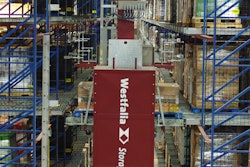
Each major technology shift or revolution in the manufacturing industry has at its core the identification and then harnessing of a new type of utility. First, it was the power of water and steam, which brought about the mechanization of the production process. Next, came electricity which enabled mass production, followed by the rise of electronics and computers which then substantially increased automation of the production process. Now, in what we may call “the fourth industrial revolution,” the new utility is cloud computing and manufacturers are in the midst of exploring this latest powerful change agent which has the potential to remake the entire industry yet again.
Cloud Enables Location Irrelevance and the Omnichain
Cloud computing provides manufacturers with massive amounts of computing power, storage, data and analytical tools. In contrast to earlier revolutions, where manufacturing location was determined by ready access to water, fossil fuels or electricity grids, the cloud effectively drives location irrelevance. By moving their entire operations to the cloud, by adopting a cloud-based business management suite like NetSuite, manufacturers have the opportunity to rethink and redefine their underlying supply chain operations. Instead of each factory and warehouse being separately managed and monitored like separate links in a chain, manufacturers can establish an “omnichain,” a single cloud-based environment built around a unified data set that fully integrates all supply chain business processes regardless of where they occur.
In this new cloud-based world, manufacturers have the ability to not only manage their own operations, but also those of their partners – so controlling and gaining insight into their entire supply chain and therefore the entire lifecycle of their manufactured products from prototype through to finished product. As manufacturers and their suppliers work more closely together and share more information, third-party logistics providers (3PLs) and other partners effectively become a virtual part of the manufacturer’s own organization. By taking a cloud-based approach, manufacturers can more quickly scale up (and scale down) and repurpose its manufacturing facilities without having to incur the massive IT costs, time and maintenance overheads which would be required to effect change in antiquated on-premise systems.
Cloud Helps Shift Focus from Mass Production to Mass Customization
Having complete control and real-time visibility across their supply chain is vital for manufacturers today. We live in a customer-centric world where customer expectations for product design, quality and availability are set very high. It’s also a more disposable and faddish world where customer appetite is very strong for the latest and greatest products, meaning the life cycle for many products, particularly consumer electronics, is continually shortening.
Customers are also very interested in more personalized products, which means many manufacturers are leaning more toward mass customization—the mass production of individually customized products—than the traditional manufacturing focus of mass production. As an aside, there will also be more interest from certain groups of consumers in traditional, non-digital manufacturing techniques and a desire to purchase truly hand-crafted products leading to the establishment of more boutique manufacturing plants.
To meet the demand for mass products which are then tailored to the needs of specific individuals, manufacturers need to determine where that personalization of products will occur whether on the shop floor or, given rapid changes in buying patterns, as close to point of ultimate purchase as possible – in the warehouse or perhaps even within the store.
The manufacturing process will continue to become more and more digitized. Manufacturers will have to make use of new and emerging materials and technologies. They will have to put into place business processes which will enable them to collaborate more closely on innovation and design with a broader set of communities including partners, customers and potentially anyone around the world with some useful input and expertise.
Some manufacturers will find their primary purpose shifts so while they still make and produce products, their core business is more about the paid services attached to those products. For example, today’s provider of a smartwatch is tomorrow’s web services expert provider. So, the watch becomes less of the business focus and more of a free item complementing the subscription services that provide that watch with all manner of easily consumable and useful data including real-time news, traffic alerts, weather forecasts, sports results, etc.
The Impact on Manufacturing of the Internet of Things and 3D Printing
The emergence of the Internet of Things is also set to change both the manufacturing process and many manufacturers’ business models and focus. As more devices include embedded intelligent sensors, components and finished products can start communicating with manufacturers and with each other from the shop floor. By having real-time access to transmitted component or product status information, manufacturers can act quickly to dramatically improve product quality since any issues or defects within components and products will be quickly communicated. There’s also the possibility of hooking the end customer into the machine-to-manufacturer two-way communications so the consumer could start taking ownership of their product and also influence its design as it’s being built.
3D printing is another technology with the potential to disrupt manufacturing and not only the manufacturing of simple products and components. While today, manufacturers mostly use 3D printing to prototype products, in future, as the printers become commodity items, they may become a household fixture in the hands of many consumers. Once that happens, some manufacturers may shift to focus purely on product design, while consumers “make” the products via their printers.
Conclusion: The Cloud Fuels and Facilitates the Manufacturing Revolution
Cloud computing has provided the initial spark for the fourth industrial revolution and will remain its primary utility. As manufacturers are required to reinvent their businesses and processes to take account of mass customization, the Internet of Things and 3D printing, the cloud can help support those major shifts and enable manufacturers to be more agile and responsive to all the forces of disruptive change.
Gavin Davidson, vertical market expert for manufacturing, brings to NetSuite more than 25 years of industry experience. In his current role, Gavin is charged with utilizing his understanding of the product, market place and customers to increase sales, improve customer satisfaction and retention and drive the solution maps for partner and product offerings. Prior to joining NetSuite, Gavin initially completed an apprenticeship in production engineering before taking on several consulting roles implementing a variety of manufacturing software products such as Epicor, Microsoft Dynamics, Experlogix and Visual Manufacturing.










